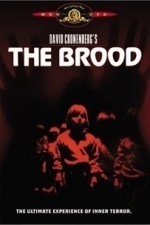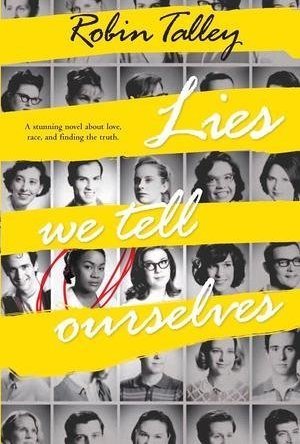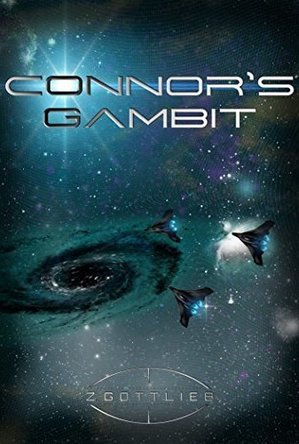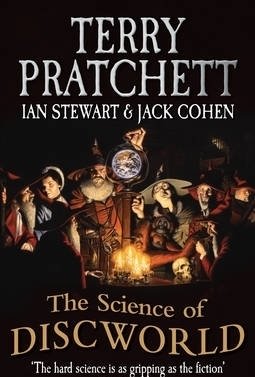
The Science of Discworld
Terry Pratchett, Ian Stewart and Jack Cohen
Book
This is the fantastic first book in the Sunday Times bestselling Science of Discworld series. When a...
Matthew Krueger (10051 KP) rated The Brood (1979) in Movies
Sep 4, 2020 (Updated Sep 4, 2020)
The plot: follows a man and his mentally-ill ex-wife, who has been sequestered by a psychologist known for his controversial therapy techniques. A series of brutal unsolved murders serves as the backdrop for the central narrative.
Conceived by Cronenberg after his own acrimonious divorce, he intended the screenplay as a meditation on a fractured relationship between a husband and wife who share a child, and cast Eggar and Hindle as loose facsimiles of himself and his ex-wife. He would later state that, despite its incorporation of science fiction elements, he considered it his sole feature that most embodied a "classic horror film".
Written in the aftermath of writer-director Cronenberg's divorce from his wife, The Brood has been noted by critics and film scholars for its prominent themes surrounding fears of parenthood, as well as corollary preoccupations with repression and the treatment of mental illness in women.
The Brood is my version of Kramer vs. Kramer, but more realistic." —Cronenberg commenting on his concept of the film, 1979.
In retrospect, Cronenberg stated that he felt The Brood was "the most classic horror film I've done" in terms of structure.
The Brood had cuts demanded for its theatrical release in the United States, Canada, and United Kingdom. Eggar conceived of the idea of licking the new fetuses that her character Nola Carveth has spawned. "I just thought that when cats have their kittens or dogs have puppies (and I think at that time I had about 8 dogs), they lick them as soon as they’re born. Lick, lick, lick, lick, lick…," Eggar said.
However, when the climactic scene was censored, Cronenberg responded: "I had a long and loving close-up of Samantha licking the fetus […] when the censors, those animals, cut it out, the result was that a lot of people thought she was eating her baby. That's much worse than I was suggesting.
Its a distubing film but a excellent film.
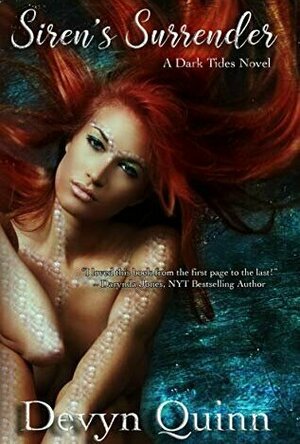
Siren's Surrender (Dark Tides #2)
Book
Never embracing her mermaid heritage, Gwen Lonike lives in the human world as the owner of a Maine...
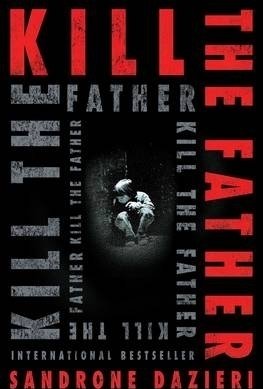
Kill the Father
Book
'The rock cast a sharp, dark shadow over a shape huddled on the ground. Please don't let it be the...
graveyardgremlin (7194 KP) rated The Other Countess (The Lacey Chronicles, #1) in Books
Feb 15, 2019
The story itself isn't exactly original and doesn't go into any unfamiliar territory, but it's ably told and fairly inoffensive, making it suitable for older teens (there are numerous allusions to sexual situations but that's as far as it goes). The dialogue and sensibilities are more modern in nature and don't always ring true to the era, but some liberties are always taken in young adult fiction, therefore making it something I can forgive. Very light on historical content, this is more for the romantics out there who like a historical backdrop to a love story. For the first half, I wasn't very involved into either the characters or their story, and it didn't help that it moved at a slow pace, though at the halfway point it picked up and started charming me. However, the hero and heroine were a little too perfect, more so in Ellie's case, as she didn't seem to really have any negative attributes other than she has a bit of a temper. Maybe if they had a few more rough edges I would have rooted for them to have their happy ending, as it is, I wasn't that invested. I do think that the secondary character, Lady Jane Perceval, has promise on that front since her narrative had a more realistic feel to it, so I may just pick up her story when it comes out ([b:The Queen's Lady|8805112|The Queen's Lady (The Lacey Chronicles, #2)|Eve Edwards|http://photo.goodreads.com/books/1327950501s/8805112.jpg|13679272]). The resolution to Will and Ellie's story came far too easily and some more conflict would have made it much better. Still, as I said, it's a sweet story, even if nothing sets it apart from other books. An easy read that should appeal to teenage girls.
Hazel (1853 KP) rated Lies We Tell Ourselves in Books
Dec 17, 2018
<i>Lies We Tell Ourselves</i> by Robin Talley is a realistic tale about the beginning of the integration of coloured people into white schools in late 1950s America. In Virginia it is 1959 and ten Negros are beginning their first day at Jefferson Highschool. The experience is narrated from one of the ten, Sarah’s, perspective. In other parts of the novel the voice changes to that of Linda, a particularly nasty white girl, who is one of countless students opposed to integration.
Although many young people will have been taught about the black civil right movement it is still shocking to read about the horrible things they had to endure. By writing in the first person, Talley encourages the reader to try to understand how they would feel in a similar situation. Sarah and her friends instantly become the victims of verbal and physical abuse that members of authority turn a blind eye to.
To Sarah, Linda is a nasty spoilt bully who, although does not join in with the taunting and abuse, is as bad as the rest of them. Through reading Linda’s account it becomes clear that her behaviour has a lot to do with her home life, in particularly with her father’s attitude towards her. After being forced to partner Sarah for a French project Linda begins to question why there is so much emphasis on skin colour, however not wanting to be shunned by her own friends she keeps these thoughts to herself.
Sarah is also struggling to come to terms with her sexual preference for girls. It has been drilled into her that these thoughts are a sin. She hides her true feelings from everyone and constantly berates herself mentally for being “unnatural”. But it turns out she may not be the only one with these thoughts.
The lies referred to in the title are not the blatant or harmful lies but rather the lies the characters believe or even want to believe. Each chapter begins with a lie that reflects what is occurring in the novel at that time; for example “There’s no need to be afraid” and “I don’t care what they think of me.” This is an interesting way of telling the story as it emphasizes Sarah’s determination to keep going despite what she is subjected to. It also reveals the mental struggles she faces. On the other hand the lies disclose Linda’s conflicting feelings towards the South’s current situation and segregation laws.
Although not a religious novel, each part begins with the title of a Christian hymn. It was the norm for everyone to go to church and, despite the separate churches, was something black and white people did. Sarah and Linda have faith in God yet they both use the bible’s teachings for opposing arguments. The religious aspect also highlights Sarah’s self-hatred and belief that she has fallen into sin.
Unfortunately in today’s world there are still issues with racism and homophobia however after reading <i>Lies We Tell Ourselves</i> it is evident that these situations have vastly improved, at least in the Western world, since the 1950s. Without children such as Sarah going through these horrible experiences nothing would have changed. There would still be separate schools, slavery and inaccurate opinions about race inequality. America has a lot to thank these brave students who were the first to create mixed race schools.
Overall this is a brilliant book. Well written and realistic, it really draws the reader in to the characters’ stories. Although <i>Lies We Tell Ourselves</i> is a work of fiction, it is historically accurate and can teach a lot about America’s history to young adults today.

Fighting Fantasy: The Forest of Doom
Games and Book
App
Nostalgia overload! Fighting Fantasy returns with Ian Livingstone's classic, The Forest of Doom. ...
Haley Mathiot (9 KP) rated The Secret of Ella and Micha (The Secret, #1) in Books
Apr 27, 2018
1. Drama. Drama, drama, drama! Really that’s what most fiction boils down to, but what makes a book good is that the drama is realistic. This drama was a little overdone. Ella goes to college (running away without telling anyone where she went, which technically is impossible: trust me, I know. My university sends my parents stuff all the time with their logo on it). when she comes back, Micah is a mess, and has been looking for her everywhere.
2. Physicalities. I felt like this book was an excuse to write steamy romance… bad steamy romance at that. When Ella comes home, she still wants Micah, but she won’t admit it. And he knows it. Then he starts flirting with her, touching her, kissing her on the ear, etc. Really? The girl won’t even look you in the eye, doesn’t want to talk to you, and you can’t even rekindle your friendship before getting touchy-feely? Talk about being a douche bag. After she tells him off and leaves, he climbs into her room through the window and climbs in bed with her. C’mon. Really? Does this girl have no self respect? Then there was the factor that it wasn’t even hot. I mean, if you want to write erotica, fine. Write erotica. don’t disguise it as a New Adult novel… and at least make it good. It was just sappy and corny. Trust me, writing emotional and physical scenes is really hard: I’ve written a few now since I’ve gotten through some of my own books. But if you suck at writing love scenes, don’t make your whole book a drawn out love scene.
3. The sorority best friend. Every time this b!tch opened her mouth, I had flashbacks to this video (). That was one thing the narrator did really well: She nailed the rich kid! And I couldn’t stand her. Maybe that was the point… but it was just the nail in the coffin for me.
So yeah, that’s why I didn’t like the book. Also, the female narrator sounded like she was fourteen, and the male narrator sounded twenty eight… So that was awkward.
Maybe if I read the book instead of listened to it, I would like it more… but as of now, I can’t recommend it.
Haley Mathiot (9 KP) rated Dancing on Broken Glass in Books
Apr 27, 2018
Let's start with a critical analysis and break down the text: First, the writing was really good. Like, Dianne Dixon good, or JK Rowling good. It was filled with flowing and descriptive prose and beautiful metaphors. I could probably write a ten-page paper on some of the literary themes in this novel. It wasn't just fiction for the sake of the story: There was so much beauty about the meaning of life and love and commitment and… well, I'll let you read it.
The pacing was excellent. The very first sentence caught me by the hair and dragged me the whole way through the book. I read most of it in one setting, stopping only to readjust the pillow behind my back.
Now for the really important stuff:
The characters in Dancing on Broken Glass were so epic that I truly didn't want this book to end. They were so wonderful, but so terribly and humanly flawed, just like real people are, that I feel like if I saw Mickey or Lily on the street, I'd recognize them right away.
And boy did I relate to some of these characters!
The ending was just superb. It was heartbreaking, but I knew it was destined from the moment I started reading. It was so perfect and fulfilling that it was worth all the emotional turmoil the rest of the novel put me through.
On that note, it wasn't one of those books that are so hard to read that you can only take it in small doses or that it makes you cry, or extremely emotional readers can't handle it. Nor did it have any offensive language or sex scenes (okay there was some mention of sex, but it wasn't explicit in any way). In fact, it was one of the least offensive novels I've read in a very long time. We're talking years.
The romance was better than anything I've read in any teen novel. The relationships were true and realistic to the core. The flawed characters were just as real to me as I am to myself. The message of hope and grief and dedication and sacrifice will stay with me forever. I hope I never forget this story.
Dancing on Broken Glass was an absolutely beautiful novel. Ka Hancock is going on my Author Watch, and this novel is staying on my "re-read" bookshelf. I recommend it to absolutely anyone willing to hear a really good story.
Sassy Brit (97 KP) rated Connor's Gambit in Books
Jun 5, 2019
After Brad sees an alien spaceship and it seems no one else did, he begins to doubt his sanity. But when his suspicions are confirmed and his wife, Shinny, reveals who and what she really is, his life not only changes forever, but so does everything he thought he knew about his life and the universe which surrounds him — aliens do exist — he should know, he’s married to one! And, boy, does the plot thicken after that.
In Z. Gottlieb’s fun world there were times that the space technology seemed so realistic I was wondering if the author had some sort of NASA experience. From alien creature descriptions, their lifestyles and their amazing high-tech technology, to Brad’s awakening and newfound belief in UFOs, and his acceptance to jump right in and help, whilst learning on the job; this book has a lot to offer any self-respecting science fiction fan and space cadet!
A few of my favourite things? There’s so many to choose from. I loved Brad (obviously!). Then there’s the scary Neslins, the Aneplè, the battle cruiser Zuonopy and all its features and Brad and Shinny’s son, Dane with his talking dragon Yeshawliq. I need a talking dragon, can you make one out of a 3D printer for me please?
The narrator’s voice was different to what I expected at first, however, Charlie Thurston pulled me into the action and kept me hooked right through to the satisfying end, which is slightly left open for more, whilst at the same time it’s also a fully completed standalone story with major plot threads all tied up nicely. I’m so pleased to have discovered Z. Gottleib’s space world and I cannot wait to read or even listen to the next instalment. I’m sure it will definitely be worth the wait!
Z. Gottlieb has captured the essence of space travel, alien life and the rules of their universe spectacularly. I really enjoy my time (all 13 hours of it) listening to this space opera, and the fact that I was listening (instead of reading) really made me feel like I was there, thrown in deep with the characters and their stories, part of their crew!
